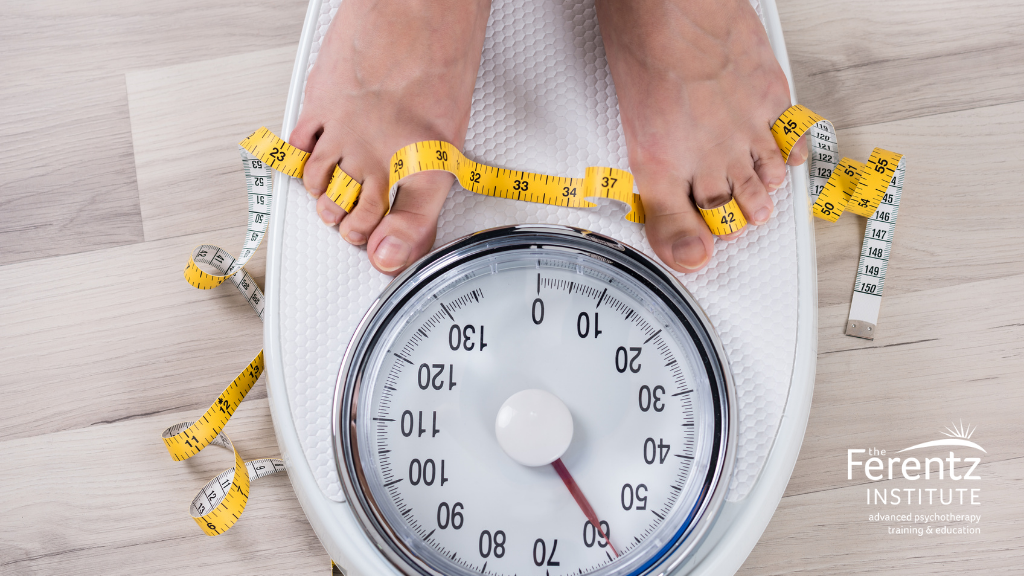
Despite what all those weight loss ads tell you, being able to fit into a size zero bikini should not be your greatest life accomplishment. Nor will it help you achieve true happiness, inner peace, self-confidence or self-worth. Yet our culture puts such an emphasis on appearance and thinness it’s difficult to not be swayed by society’s version of beauty and how the multi-billion dollar dieting industry tells you to look. Young girls poring over images of their favorite celebrities get the message loud and clear; if you want to be successful, rich, or in a relationship with a good-looking partner, start dieting. And due to our ongoing struggles with Covid, many people have turned to excessive eating to numb, self-medicate, and ward off intense feelings of isolation, uncertainty, and boredom. They are also looking for extreme diets to quickly get rid of the extra weight.
There are many gateways into eating disordered thinking and behaving, and dieting is one of the most common and dangerous. With the help of countless weight loss programs, millions of people set themselves up to half starve all day, avoiding foods that are “bad”. They might try to severely restrict their intake of calories throughout the day. It’s easy to skip breakfast, distract through lunch with a busy work schedule, and even white knuckle putting off dinner. But by the evening hours the body is hungry and angry! It needs sustenance to accomplish every physical activity and mental challenge.
When the body is pushed to produce without giving it the fuel it needs to make that happen, it’s like demanding a car go 100 miles on an empty tank of gas.
Starving sets up the inevitable need to binge. In a tired and hungry state, judgment is impaired and impulsivity increases. In an attempt to rebalance the lack of food, there is a great vulnerability to going overboard: compensating for the profound dip in blood sugar and depleted energy. Bingeing is not the same thing as merely overeating. Three extra cookies is overeating- the whole bag followed by other snacks is a binge. Bingeing is often done in a detached state. Many people claim they don’t even taste what they’re eating, or experience standing outside of themselves watching the binge without the ability to stop. Bingeing leads to a state of physical pain and fatigue, as well as intense feelings of guilt, shame, powerlessness, self-hatred, and a profound loss of control. These thoughts and experiences are a set up to “make-up” for the binge by starving again. This is the beginning of the restrict-binge-restrict cycle that creates medical complications, emotional and psychological pain, and can lead to serious impairment.
It’s not easy to consciously choose to ignore the images and messages that tell you what you should and should not eat or how much you should weigh. It’s not easy to stop numbing with food as the Covid crisis continues. However, taking steps to help break the starve-binge cycle, re-claim your body, and begin to focus, instead, on healthier ways to navigate anxiety and stress will help make inroads into achieving a true and meaningful sense of self-worth and inner peace.
Here are some suggestions to help clients break the starve-binge cycle and forge a healthier relationship with their bodies and with food:
- Honor and respect the uniqueness of your body and how it was meant to look.
- Make the conscious choice to listen to your body so you eat when you’re hungry and become more aware of when you’re full.
- Give yourself permission to enjoy what you eat! Take your time to taste and appreciate it. Your brain can only register fullness if it is “present” for the experience of eating.
- Stop dieting! Focus instead on portion size and eating balanced meals and snacks.
- Don’t skip meals. They set you up for bingeing at the end of the day.
- Think about food as a positive source of energy and sustenance, rather than a source of comfort, reward, or a weapon.
- Stop labeling foods as “good” or “bad.” That adds an unnecessary emotional component to eating and sets you up to diet.
- Decide how much power you’re going to give to the number on the scale, and the extent to which you will allow it to define your worth.
- Cultivate a practice of gratitude for all of the amazing things your body does for you everyday!
- Choose to spend less energy thinking and worrying about food, calories, and the shape of your stomach. Instead, re-channel that energy into hobbies, loving relationships, personal and professional growth, paying it forward, and making a meaningful difference in the world.

